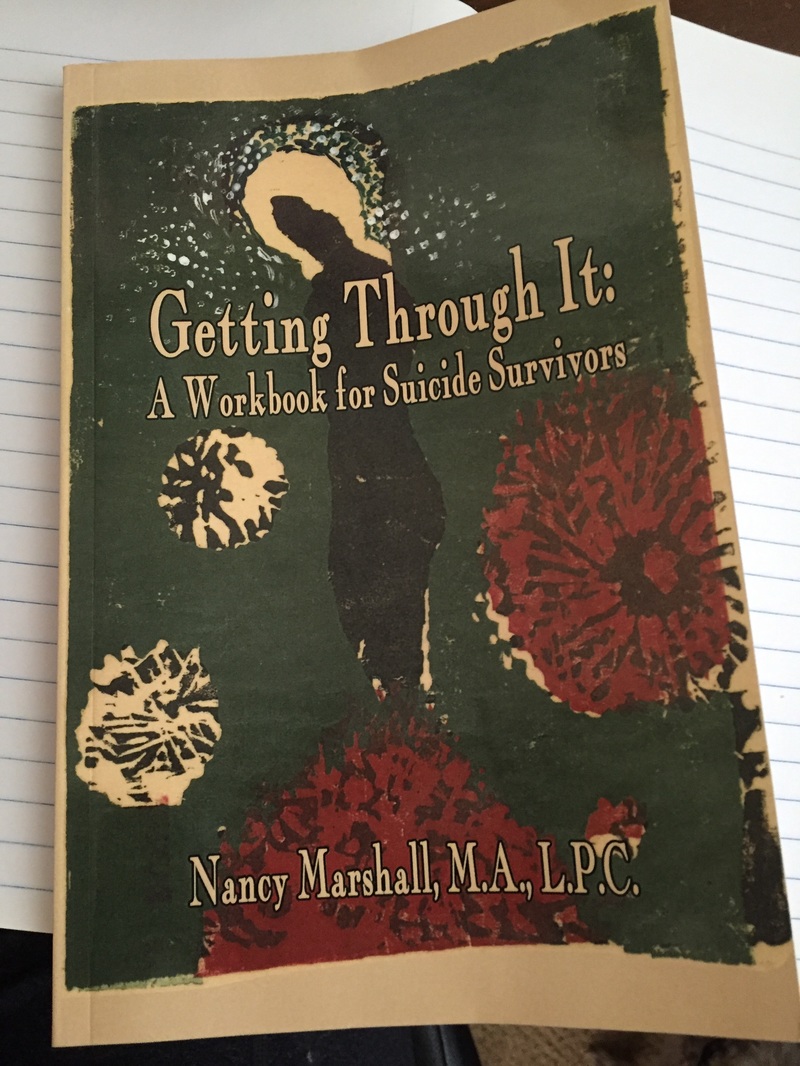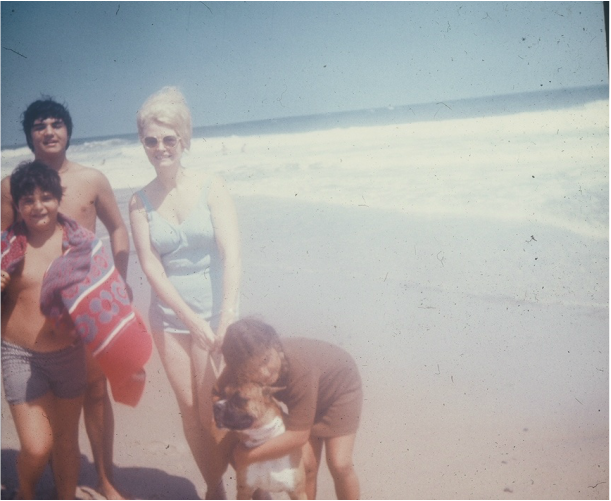Getting Through It: A Workbook for Suicide Survivors, written by Nancy Marshall, M.A., L.P.C., provides an understanding of suicide and its impact and gives the reader clear strategies to cope and heal. In reviewing the book, I found that many of the strategies are useful for those experiencing different types of loss, not just suicide. It is written simply without psycho-babble.
Suicide is both impulsive and the result of the long, slow break down in a person's resources.

I was inspired to post about suicide, and the book, Getting Through It: A Workbook for Suicide Survivors, written by Nancy Marshall, M.A., L.P.C..
Many of us know someone either directly or indirectly who took their own life. I do.
My father's cousin was a beautiful, accomplished, fashionable, progressive, professional in her 50's who shot herself in the head. Shocking right? I was just a kid when it happened.
I loved Cousin Helen for her kindness. I remember visiting her in the 1970's in Washington D.C., where she was held an important position at the FBI. She gave us a tour of the FBI and we also visited the White House and the Smithsonian.
She had a boxer named Dukey Boy and I remember saying "Look into my eyes Dukey Boy and what do you see?" much to the horror of my parents - since you never are suppose to get that close to a dog's face and have a staring contest.
 Cousin Helen. Mom & that's me to the right
Cousin Helen. Mom & that's me to the right What I Like About this Workbook For Suicide Survivors
Chapter 1 is focuses on the emotions that we experience: anger, guilt, loneliness, shock, confusion, numbness, fatigue and so on. Chapter 2 takes these emotional considerations deeper using the analogy of being a seagull coming about from an oil spill, tarred and feathered. Chapter 3 is entitled, "Being Better, Treating Trauma and Achieving Forgiveness." Chapter 4 is about how to help children. I give kudos to my Mom; her instincts were spot-on and she was truthful and gentle, telling me in a safe place and making it safe to ask questions and share memories about Cousin Helen. Chapter 5 focuses on practical things like funeral and financial arrangements and Chapter 6 focuses on prevention. Nancy Marshall, the author, has facilitated groups for suicide survivors for eight years and her experience as a clinician with 35 years of experience is invaluable to the reader.
I hope this article inspires others to take better care of themselves
and invest in their emotional well-being.
If You Or Someone You Know Needs Help

The National Institute of Mental Health recommends http://www.suicidepreventionlifeline.org/.
- If you prefer texting, Crisis Text Line provides free help - just text "help" to 741-741
- If you want receive help by phone, N.I.H. recommends the National Suicide Prevention Lifeline: 1-800-273-TALK (8255).


 RSS Feed
RSS Feed